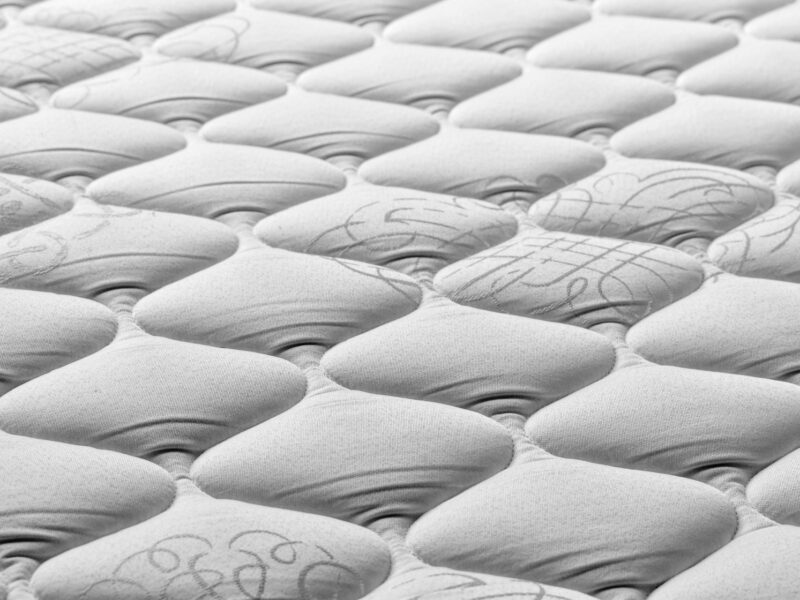We’ve all been there. The clock strikes midday, and just as our stomachs growl, an aching pain surrounds our temples. It’s not just any ordinary headache-it’s the dreaded “hunger headache.”
But what causes this discomfort, and why does it coincide with our body’s need for food? Even more importantly, how can we alleviate it?
Imagine being equipped with the knowledge to understand and eliminate this common ailment. Read on to uncover the mystery behind the hunger headache and find simple relief solutions.
What Is a Hunger Headache?
A hunger headache is a common ailment many of us might have experienced but may not have recognized by name. As the terminology implies, a hunger headache is a type of headache that emerges as a result of not eating or consuming enough nutrients over an extended period. However, it’s not as simple as feeling pain when hungry.
Now let’s dig into the intricacies of this phenomenon:
Connection to Blood Sugar Levels
One of the primary reasons for a hunger headache is the drop in blood sugar levels. This concept is known as hypoglycemia.
The brain is an energy-intensive organ requiring a constant supply of glucose. When we skip meals or fast, our blood sugar levels can drop. That can cause the brain to work harder to function.
This added stress and lack of necessary glucose can result in a headache.
Muscle Tension and Hunger
Muscle tension, especially in the neck and head, can also be a side effect of hunger. When we don’t consume enough food, our body’s energy reserves start to deplete. This depletion can lead to fatigue, making our muscles tense up, including those in our head and neck.
Muscle tension can result in pain in back of head or around the temples.
Body’s Reaction to Nutrient Deprivation
Missing out on essential nutrients can trigger headaches. When deprived of crucial nutrients, the body can release certain chemicals. These chemicals lead to changes in the blood vessels within the brain.
This alteration in blood vessel behavior – constriction followed by dilation – is another factor causing a hunger headache.
A hunger headache is the body’s distress signal. It indicates that the body needs nourishment. Recognizing and acting upon the signs is vital to prevent prolonged discomfort.
Effective Headache Management and Treatment
Headaches can disrupt our daily routines and impact our overall well-being. However, understanding and addressing their root causes can make a significant difference.
In the following section, we’ll explore practical strategies for headache management and treatment.
1. Maintaining Blood Sugar Stability
At the heart of many hunger-induced headaches is the fluctuation of blood sugar levels. The brain reacts sensitively to sharp drops or spikes in sugar intake.
Complex Carbohydrates
Consuming complex carbohydrates like whole grains, legumes, and certain vegetables provides a steady release of glucose. This gradual release ensures the brain gets a constant supply. Complex carbohydrates minimize the risk of sudden sugar drops that cause hunger headaches.
Avoiding Sugary Snacks
Indulging in high-sugar snacks or beverages can lead to rapid spikes and subsequent crashes in blood sugar levels. Relying on such quick fixes can elevate the risk of headaches. Too much sugar can lead to longer-term health problems like diabetes.
2. Eating Essential Nutrients
Specific vitamins and minerals play a direct role in headache prevention. These vitamins are vital to the overall health of our neural functions.
Magnesium
Often termed the ‘relaxation mineral,’ magnesium can help muscle relaxation and nerve function. A magnesium deficiency has been linked to headaches. Foods rich in magnesium include the following:
- Leafy greens
- Nuts
- Seeds
- Whole grains
B Vitamins
The family of B vitamins, especially riboflavin (Vitamin B2), has been shown to reduce the frequency of migraines. Good sources include the following:
- Dairy products
- Eggs
- Green leafy vegetables
- Lean meats
3. Staying Hydrated
The importance of water goes beyond quenching thirst. Dehydration is a prominent trigger for headaches. Dehydration happens when the brain temporarily contracts due to fluid loss.
Regular Intake
It’s vital to maintain consistent hydration throughout the day. Waiting until you’re parched can mean you’re already on the verge of dehydration. Incorporate water-rich foods such as:
- Cucumbers
- Watermelon
- Oranges
- Apples
- Grapes
Balancing Electrolytes
When hydrating, especially after physical exertion, ensure that electrolytes (like sodium and potassium) are replenished. Natural sources include bananas, oranges, and dairy products.
4. Avoiding Common Dietary Triggers
Diet plays a pivotal role in influencing the frequency and intensity of headaches. Let’s look at some typical food or drinks to reduce or avoid.
Caffeine
Sudden changes in caffeine consumption can lead to headaches. For regular coffee or tea drinkers, it’s essential to maintain a consistent intake. But be cautious while trying to reduce or eliminate caffeine from your diet.
Food Additives
Monosodium glutamate (MSG), nitrates, and artificial sweeteners like aspartame have been identified as potential headache triggers. Limiting these additives can reduce headaches for some individuals.
5. Eating Regular Meals
Consistency in meal timing is as crucial as the content of the meal itself. Our body’s internal clock impacts our sleep and digestive processes.
Regular meal intake aligns with this rhythm. That ensures optimal digestion and nutrient assimilation.
Energy Stability
Regular meals ensure your body has a constant energy supply. This prevents sudden energy drops, which can trigger headaches. When the body knows when to expect food, it can regulate blood sugar levels and energy reserves.
Digestive Health
Eating at regular intervals can also aid digestion. Overloading the stomach after long periods of fasting can strain the digestive system.
This strain can lead to issues like acid reflux. Acid reflux may trigger headaches.
Curb Overeating
Spacing out meals can also prevent overeating. We overcompensate during the next meal when we skip meals or wait too long between them. Overeating can cause blood sugar fluctuations.
6. Avoiding Processed Foods
Modern diets are rife with processed foods. Processed food often comes packed with additives, artificial flavors, and high levels of salt and sugar. While they offer convenience, their health implications can be concerning.
Additives and Preservatives
Many processed foods contain additives and preservatives. These can be direct headache triggers.
Monosodium glutamate (MSG) is a prime example. Some people might experience an “MSG headache” after consuming foods containing this additive.
High Sodium
Processed foods are high in salt content. Too much salt can cause dehydration which is a common headache trigger. High salt intake can also lead to high blood pressure, another potential headache and health culprit.
Refined Sugars
Processed foods often have high levels of refined sugars. These can cause sharp spikes and crashes in blood sugar levels, leading to headaches.
Unnatural Fats
Many processed foods contain trans fats or unhealthy saturated fats. Besides their cardiovascular implications, these can also affect overall body inflammation. This potentially leads to headache pain.
7. Drinking Herbal Teas
Herbal teas have been a cornerstone of natural medicine for centuries. Their soothing properties not only provide comfort but can also address some of the underlying causes of headaches.
Chamomile Tea
Renowned for its calming effects, it can help relieve stress and anxiety. Its anti-inflammatory properties can also reduce the severity of headaches.
Peppermint Tea
The menthol in peppermint tea acts as a natural muscle relaxant. Drinking this tea can soothe muscle tension in the head and neck, alleviating headache pain. It can also help open the sinuses.
Ginger Tea
Ginger is a natural anti-inflammatory and can help reduce the production of body chemicals that promote headache pain. Regular consumption can reduce the frequency and severity of headaches.
8. Using Essential Oils
Essential oils are derived from the essence of plants. It offers therapeutic benefits that can be effective in headache management. Let’s look at a few of the different essential oils:
Lavender Oil
This oil is recognized for its relaxing and soothing properties. Inhaling the aroma of lavender essential oil can alleviate stress and tension headaches. It’s also believed to be effective for migraines when inhaled during the early stages.
Eucalyptus Oil
This oil is perfect for those experiencing headaches due to sinus issues. Eucalyptus oil can help clear nasal passages and reduce inflammation.
Rosemary Oil
This oil has both analgesic and anti-inflammatory properties. Applying diluted rosemary oil to the temples and massaging can help reduce headache pain.
9. Getting a Massage
Regular massages go beyond just relaxation. They can be a pivotal part of headache management.
Tension Relief
Many headaches arise from tension in the neck and upper back muscles. A massage can help relieve this tension. It reduces the frequency and intensity of tension-type headaches.
Improved Circulation
Massages promote better blood flow. They ensure the brain receives a consistent supply of oxygen-rich blood. This can prevent headaches arising from poor circulation.
Stress Reduction
The calming effects of a massage can reduce cortisol levels. These are the body’s primary stress hormones. Since stress is a prominent headache trigger, regular massages can be a preventative measure against headaches.
Incorporating massages into your routine, whether from a professional or self-massage, can help manage headaches.
10. Taking Over-The-Counter Medication
There’s no denying the immediate relief of over-the-counter (OTC) medications for many headache sufferers. These remedies can often curb headache pain and associated symptoms.
Pain Relievers
Non-prescription pain relievers like acetaminophen, ibuprofen, or aspirin are common choices for headache relief. They work by reducing the production of pain-promoting chemicals in the body. Always follow the recommended dosage and be aware of potential side effects.
Combination Medications
Some OTC medications combine pain relievers with other ingredients like caffeine. A little caffeine can enhance the effectiveness of medication against headaches.
Cautionary Note
While OTC medications offer swift relief, still use them with caution. Overuse can lead to rebound headaches or other side effects. Always consult a healthcare professional if you often reach for OTC remedies.
11. Getting Plenty of Rest
In today’s fast-paced world, the significance of rest often gets sidelined. Still, it’s paramount for physical and mental well-being. Getting plenty of rest is necessary for headache prevention and management.
Sleep Quality Over Quantity
The general recommendation leans towards 7-9 hours of sleep for adults per night. However, sleep quality matters most.
Deep, uninterrupted sleep allows the brain to rejuvenate. That reduces the risk of waking up with a headache.
Consistent Sleep Schedule
Maintaining a regular sleep pattern, going to bed, and waking up at the same time every day, helps set the body’s internal clock. This consistency can reduce the frequency of headaches.
Creating a Restful Environment
Ensure your sleep environment promotes restfulness. This includes the following:
- A comfortable mattress and pillows
- Blackout curtains
- Keeping electronic devices away at least an hour before bedtime to reduce exposure to blue light
12. Relaxing
Since stress is a significant headache trigger, incorporating relaxation techniques into daily routines can be preventative and curative. Let’s look at some ways to relax:
Deep Breathing
This simple practice can oxygenate the brain and calm the nervous system. Deep, deliberate breaths can relieve tension, often reducing headache pain.
Meditation
Regular meditation can reduce stress and increase pain tolerance. That can make headaches less debilitating when they occur.
Progressive Muscle Relaxation
This form of relaxation involves tensing and then relaxing different muscle groups. Muscle relaxation helps to release physical tension that can lead to headaches.
Incorporating these relaxation techniques into your daily routine can have profound effects on headache management.
Take Action Against Headaches Today!
Understanding the intricacies of a hunger headache and its triggers is essential for both prevention and effective management. Listening to your body and staying proactive in your health routine is the key to a headache-free life.
Do you want to learn more about maintaining optimal health and wellness? Dive deeper into our blog to uncover expert insights and tailored advice.
Thank you for investing your time in reading our article. We encourage you to explore our other insightful blog posts. Stay informed and take charge of your well-being!




